‘Beyond Utopia’ charts the quest for freedom of thought
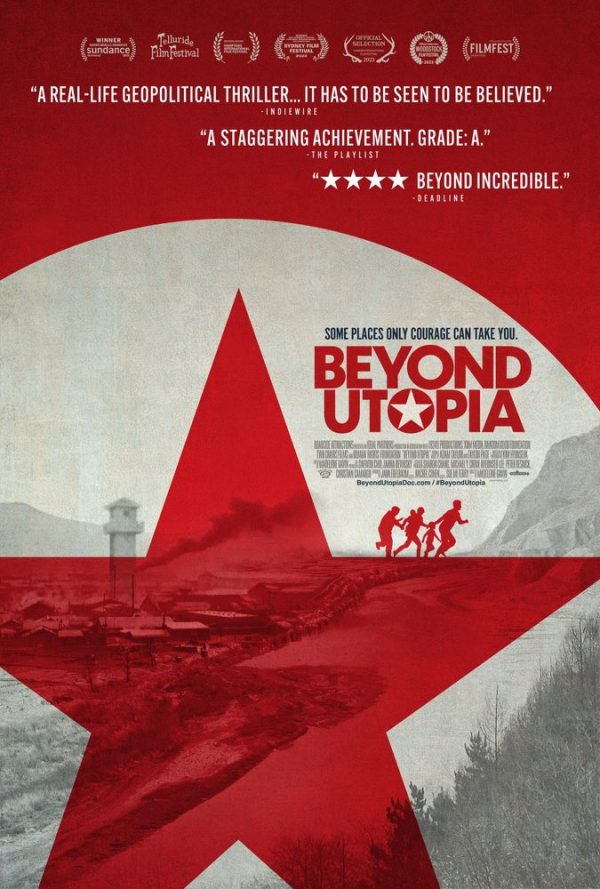
“Beyond Utopia” (2023). Cast: Pastor Seungeun Kim, Hyeonseo Lee, Barbara Demick, Sue Mi Terry, Soyeon Lee, Hyukchang Woo, Yeongbok Woo, Yonggil Roh, Jinhae Roh, Jinpyeong Roh, Sunok Park. Archive Footage: Kim Il-Sung, Kim Jong-Il, Kim Jong-Un, Douglas MacArthur, Nikita Khruschev. Director: Madeleine Gavin. Web site. Trailer.
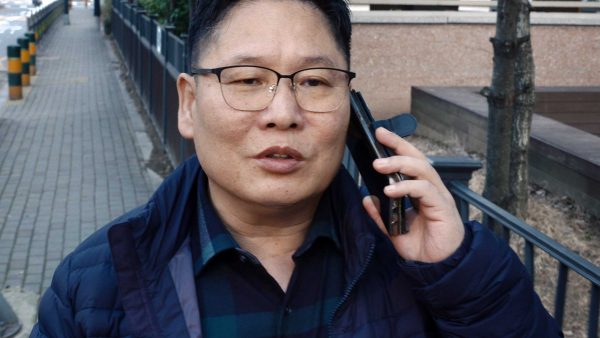
Getting out is far from easy, however, a harrowing venture that often requires defectors to flee northward to China and then maneuver through the challenging terrain of several neighboring Asian countries rather than simply crossing into nearby democratic South Korea, a sanctuary walled off by a de facto combat zone boobytrapped with countless land mines. Seeing what refugees must endure to achieve this goal is the aim of documentarian Madeleine Gavin’s latest offering, a compilation of defector stories, including those who have succeeded in escaping and those attempting to do so.
The former are told through a collection of interviews with those who have successfully made their escape, describing their experiences in detail, sometimes with a degree of reticence, almost as if they’re looking over their shoulders to see if they’re still being surveilled. The latter are compellingly filmed with firsthand, on-the-ground footage, with no reenactments, showing in detail the ordeals they must go through to make their flights to freedom, sometimes successful, sometimes not, efforts coordinated by a courageous pastor, Seungeun Kim.
In the process of presenting both of these undertakings, the film provides audiences with a concise yet comprehensive history of how North Korea reached this point. It also reveals some little-known troubling secrets about everyday life in this mysterious land, many of which most outsiders have probably never heard of, let alone seen. For example, given the fact that North Korea has been isolated from much of the outside world, it must manufacture everything it needs to sustain itself, a tall order for a nation with serious economic woes. This is difficult when it comes to such basic necessities as fertilizer to grow crops, a deficiency that has prompted the regime to require that all residents collect and provide their own feces to the nation’s agricultural industry, with penalties for those whose “contributions” are seen as inadequate. Because of imagery and narrative content like this, sensitive viewers may find some of these revelations and depictions quite disturbing, so those easily upset by such troubling visuals and ideas should take note.
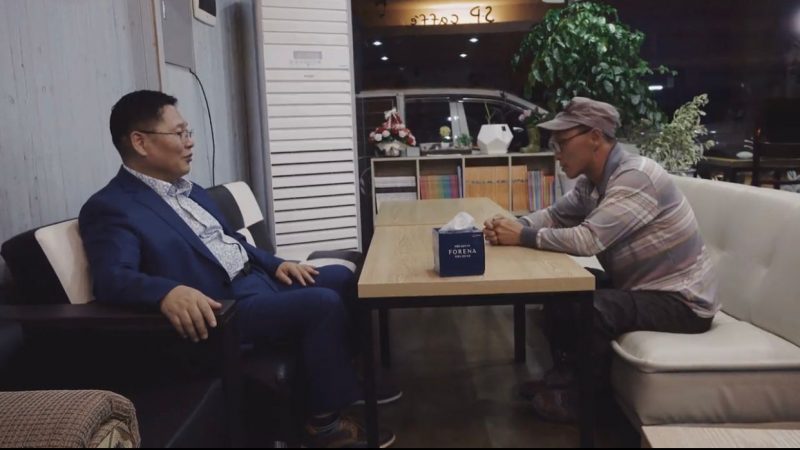
That kind of mindset is essentially a form of belief, one characterized by exclusion and limitation. And that’s important to recognize given the power of our beliefs in shaping the existence we experience, the fundamental byproduct of the conscious creation process, the philosophy that maintains we employ this force in the manifestation of our reality. Many of us, like those who reside in North Korea, may not be aware of such a school of thought. However, were we to find ourselves in a position of power to control others by imposing such a perspective on them, we might well be able to coerce them into going along with that outlook without question. It’s unconscionable that anyone would want to do so, but, if one were to employ such a tactic to achieve that result, given the power of beliefs, it’s not inconceivable that such an outcome could emerge, deplorable though it may be.
Attaining such a result, of course, requires that those who are being subjected must go along with those beliefs. But, as this film illustrates, sadly, there are many North Koreans who have done so – perplexingly even among those who are seeking to defect. In telling the story of the Roh family’s journey to flee their homeland, for example, octogenarian grandmother Sunok Park and her young granddaughters, Jinhae and Jinpyeong, freely express their undying support of the North Korean regime while in the midst of their odyssey, despite the determined efforts of their parents, Yonggil Roh and Yeongbok Woo, to seek a better life.
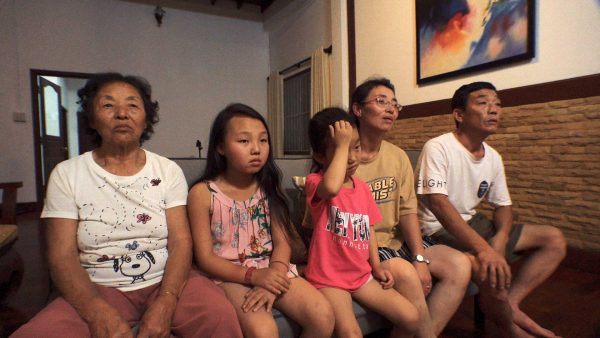
That kind of opposition, in turn, no matter how limited it might be, has forced the powers-that-be to devise the means to assert and maintain control over the populace. These measures arise from the beliefs of those in charge, and the power driving those control-based manifestations is so formidable that many of those considering a challenge to their authority think twice before taking action. Incarceration, torture and even death are drawn upon to keep the population in line, and, sadly, public awareness of these measures serves as a potent deterrent. This makes it possible to squelch oppositional beliefs often before they ever get a chance to take root.
Of course, the foregoing obstacles notwithstanding, they’re not enough to stop everyone from formulating their own beliefs to pursue their particular dreams. And, given the power behind our beliefs, they’re indeed capable of manifesting remarkable outcomes, results formidable enough to overcome even the most daunting roadblocks that attempt to get in their way. That’s apparent by the many defectors who have successfully found the means to make their escape to freedom outside North Korea.
Sadly, not everyone succeeds at this, as evidenced in the film by the struggle of a young man seeking to join his escaped mother, Soyeon Lee, in South Korea. Some challenges may be difficult to surmount, even when backed by intents aimed at overcoming them. This is where clarity of thought comes into play when formulating the beliefs we need to realize our dreams. Under circumstances like these, that’s particularly crucial given the stakes and the challenges involved. May we – and they – always have the foresight to see our way clear and find the freedom of thought so desperately sought.
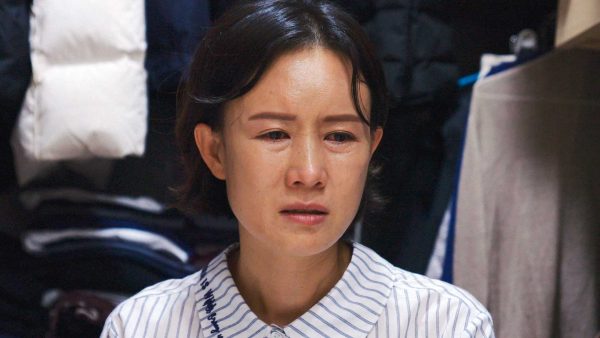
“Beyond Utopia” is simultaneously an inspiring yet difficult watch. Considering what would-be defectors must endure – challenging border crossings, the scrutiny of guards and informants along the way, the unscrupulous dealings of often-untrustworthy brokers handling the escape arrangements, among others – this offering shows the lengths to which these freedom seekers are willing to go in reaching their goals, an arduous undertaking, as director Gavin’s film so clearly chronicles. Risking one’s life on the hope of a better life – one that holds the promise of improved living conditions and even the very prospect of being able to engage in the formulation of one’s own beliefs – is quite a gamble. But, considering what these refugees stand to gain, it’s a venture that seems wholly worth it. The intrepid filmmakers’ efforts to capture these events in real time is both commendable and heroic, especially in light of what they stood to lose if they had been caught in aiding and abetting these criminals of the state, but their work gives viewers an up-front look at what these individuals are up against in seeking what most of us take for granted.
This production, a presentation of the PBS series Independent Lens, has received numerous accolades for its efforts, most notably its BAFTA Award nomination for best documentary. It was also named the winner of the 2023 Sundance Film Festival Documentary Audience Award and a Directors Guild of America Award nominee for best documentary director. Additionally, the picture picked up four nominations in the Critics Choice Documentary Award competition, including nods for best feature, political documentary, director and editing, all well-deserved honors. The film is available for streaming online.
In this day and age, there’s absolutely no excuse for the kind of abhorrent treatment to which the citizens of North Korea are being subjected. Given what’s going on, it’s no wonder that these individuals want out. It’s bad enough that they’re living under appalling conditions, but the fact that they’re being held hostage from expressing – or even possessing – their own thoughts and beliefs is positively reprehensible. We can only hope that films like this raise awareness in the wider world to place pressure on a regime that has no right to inflict such inhumanity on our fellow human beings.
Copyright © 2024, by Brent Marchant. All rights reserved.




Leave A Comment